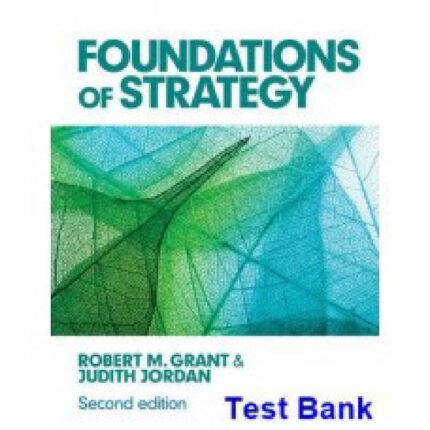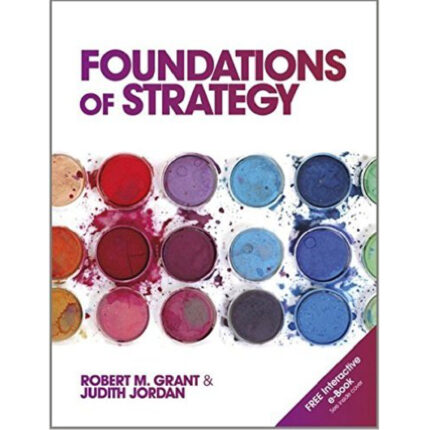Negotiation 8th Edition By Roy Lewicki – Test Bank
Chapter 11 Agents, Constituencies, Audiences
1) In the ________ relationship, negotiators are representing the interests of other parties who may or may not be at the table.
Answer: agency
Topic: Agents, Constituencies, and Audiences
Learning Objective: 11-02: Explore how negotiation changes when a negotiator has to represent someone else’s interests (i.e., act as an agent) rather than his or her own.
Accessibility: Keyboard Navigation
2) A ________ is one or more parties that have designated someone else to represent their positions and interests in a negotiation.
Answer: constituent
Topic: The Number of Parties in a Negotiation
Learning Objective: 11-01: Understand how negotiation dynamics change when additional parties are added to a two-person negotiation.
Accessibility: Keyboard Navigation
3) In negotiation, a ________ is two or more parties on the same side who are collectively advocating the same positions and interests.
Answer: team
Topic: The Number of Parties in a Negotiation
Learning Objective: 11-01: Understand how negotiation dynamics change when additional parties are added to a two-person negotiation.
Accessibility: Keyboard Navigation
4) A(n) ________ is someone who may have some stake in a negotiation and who care about the substantive issues or the process by which a resolution is reached but who are not formally represented at the table.
Answer: bystander
Topic: The Number of Parties in a Negotiation
Learning Objective: 11-01: Understand how negotiation dynamics change when additional parties are added to a two-person negotiation.
Accessibility: Keyboard Navigation
5) A(n) ________ is any individual or group of people who are not directly involved in or affected by a negotiation but who have a chance to observe and react to the ongoing events and who may at times offer input, advice, or criticism to the negotiators.
Answer: audience
Topic: The Number of Parties in a Negotiation
Learning Objective: 11-01: Understand how negotiation dynamics change when additional parties are added to a two-person negotiation.
Accessibility: Keyboard Navigation
6) Audiences who are ________-dependent derive their payoffs as a direct result of the negotiator’s behavior and effectiveness.
Answer: outcome
Topic: Audiences: Team Members, Constituents, Bystanders, and Others
Learning Objective: 11-03: Consider the critical actions and influence exerted by constituencies and audiences to a negotiation.
Accessibility: Keyboard Navigation
7) During a negotiation, the attention a negotiator pays to additional parties—regardless of who they are—is described as ________ effects.
Answer: audience
Topic: How Agents, Constituents, and Audiences Change Negotiations
Learning Objective: 11-02: Explore how negotiation changes when a negotiator has to represent someone else’s interests (i.e., act as an agent) rather than his or her own.
Accessibility: Keyboard Navigation
8) During negotiation, ________ parties are bystanders who may be drawn into the negotiation specifically for the purpose of helping to resolve it.
Answer: third
Topic: The Number of Parties in a Negotiation
Learning Objective: 11-01: Understand how negotiation dynamics change when additional parties are added to a two-person negotiation.
Accessibility: Keyboard Navigation
9) Audiences give periodic ________ to the negotiators, evaluating their effectiveness and letting them know how they are doing.
Answer: feedback
Topic: Audiences: Team Members, Constituents, Bystanders, and Others
Learning Objective: 11-03: Consider the critical actions and influence exerted by constituencies and audiences to a negotiation.
Accessibility: Keyboard Navigation
10) One kind of agent contract is behavior-contingent and is based on how the agent behaves in the role, versus a(n) ________-contingent contract, in which the agent is paid based on the type of results they achieved.
Answer: outcome
Topic: Audiences: Team Members, Constituents, Bystanders, and Others
Learning Objective: 11-04: Gain specific advice on how constituencies should manage their agents and how agents manage their constituencies.
Accessibility: Keyboard Navigation













Reviews
There are no reviews yet.